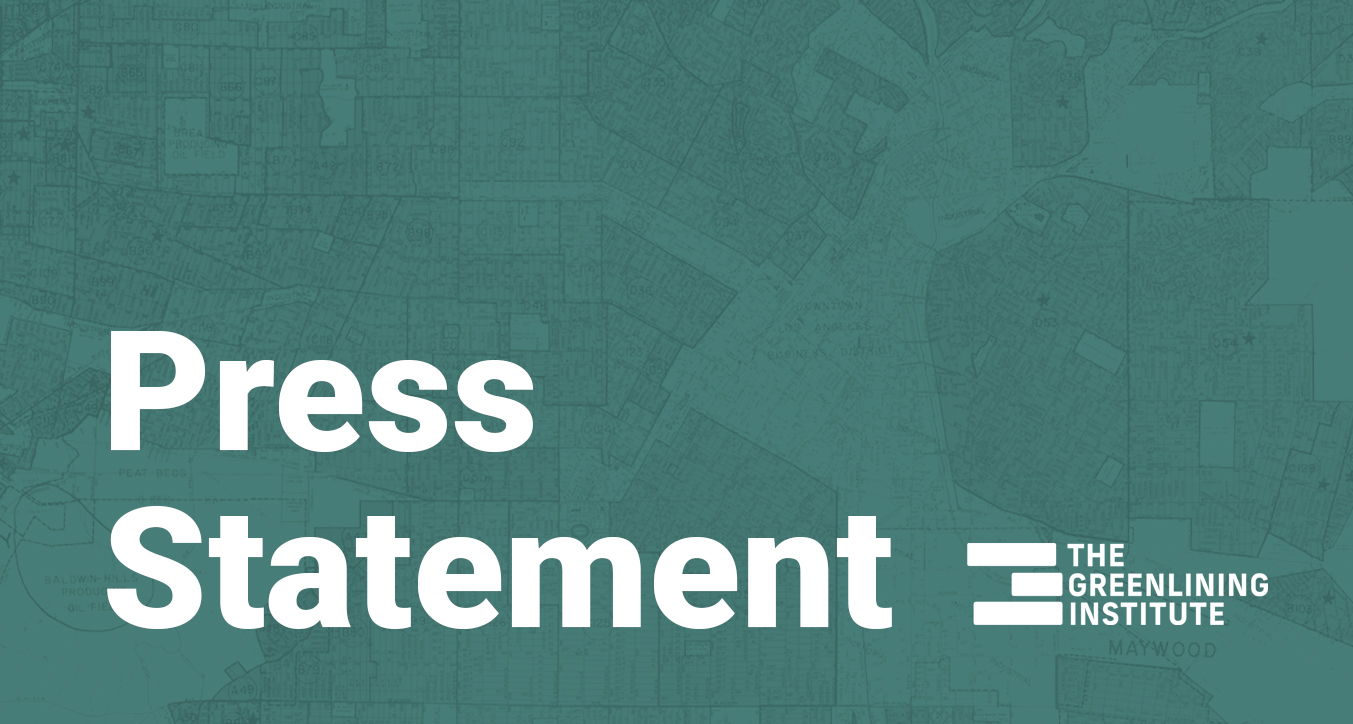Justice40: From Executive Order to Equity

President Biden kicked off his first day in office with the Justice40 Initiative, an executive order directing 40% of benefits from a selection of federal investments on climate change initiatives to the most underserved and over polluted communities. It cannot be overstated what a momentous shift this is for the federal government. For the first time in our history, we have the opportunity to direct billions in clean transportation, energy, and other climate investments into low-income communities of color. However, the key to success will be in the implementation of Justice40.
At Greenlining, we’re been fortunate to have a front row seat to Justice40 in action through the Clean Cities Coalition Network. Sponsored by the US Department of Energy, the Clean Cities Coalition Network is one of 21 federal programs selected to pilot the Justice40 initiative and develop best practices that will guide Justice40 implementation in other federal programs. This longstanding network is supported by the National Renewable Energy Laboratory (NREL) and Argonne National Laboratory, in addition to the DOE. The network includes over 75 coalitions across the country working to develop clean transportation and mobility projects in their communities.
Coalition members include state and local government agencies, community organizations, vehicle fleets, businesses, and a staff to help build strong multi-sectoral partnerships. While members of these coalitions are experts in many of the technical aspects of clean transportation, this is the first time that equity requirements have been front and center in this program. To help address these knowledge gaps, the Network launched the new Clean Cities Energy and Environmental Justice Initiative to provide intentional training, resources, and capacity to ensure that coalition staff have the tools and resources to apply an equity lens in their work moving forward.
That’s where Greenlining comes in. Since March of 2022 — NREL, ANL, Greenlining and Equitable Cities have provided equity and community-centered capacity building and technical assistance to 30 Clean Cities Coalitions from across the country.
Check out our progress so far and the next steps ahead of us.
Setting a Baseline for Equity
During phase one, Greenlining focused on providing a series of webinars that were available to all 75+ coalitions. These webinars outlined a foundational mobility equity curriculum designed to get folks on the same page about why equity must be at the forefront of this work and examples of what that can look like. The Greenlining team outlined the history of injustice in our transportation system and the present day impacts, as well as how they intersect with disparities across health, wealth, power, and new transportation technologies like electric vehicles and shared mobility. We also focused on how to address these disparities by using tools like Greenlining’s Mobility Equity Framework–a community centered transportation planning and decision making tool. Other presenters provided examples of community engagement, community-driven transportation equity projects, and contexts around rural and tribal communities. This foundational work on equity prepared participants for the next step.
Leveling up Skills
Once folks had a more solid understanding of the past and present impacts of transportation injustice, we used phase 2 to dive in with workshops for a selection of 30 coalitions. Our overarching goal was to support the coalitions’ ability to develop equitable, community-centered partnerships and design and implement equitable clean transportation and energy projects based on communities’ needs.
Charles Brown from Equitable Cities shared his expertise in community outreach and engagement strategies, stakeholder network mapping, and equity-focused data collection and metrics. The Greenlining team offered a deep dive into existing examples of clean transportation equity strategies, case studies, and capacity building efforts that aligned with future outcomes of this program. In addition to sharing content, we provided technical assistance so the 30 coalitions could develop a robust community engagement plan, designed to set up participants for the next steps.
Hire a Community Liaison and Conduct a Needs Assessment
The next two years will be critical because this is where the rubber meets the road. 17 coalitions have been selected to hire and train community engagement liaisons that will conduct needs assessments and shape the development and implementation of the Clean Cities projects within underserved communities. The role of community liaisons may require hiring a community engagement lead who will be housed within the coalition, or may work best by partnering with existing community-based organizations. The program will also provide funding for the community needs assessment, the community engagement liaisons, and additional training and time to ensure the longevity of the role. The end objective of this phase is to build trusting partnerships with community stakeholders, identify community-driven mobility and clean fuel projects, and set these underserved communities up to be ready to apply for implementation funding.
While the announcement of the Justice40 is groundbreaking in itself, the most exciting and innovative aspects are still being highlighted in these early implementation efforts. Less than one year into this Justice40 pilot project, it’s clear there is much to learn that will help guide other programs tasked with bringing the vision of the Justice40 initiative into being.
Hana Creger is the Senior Program Manager of Climate Equity. Follow her on Twitter and LinkedIn.




